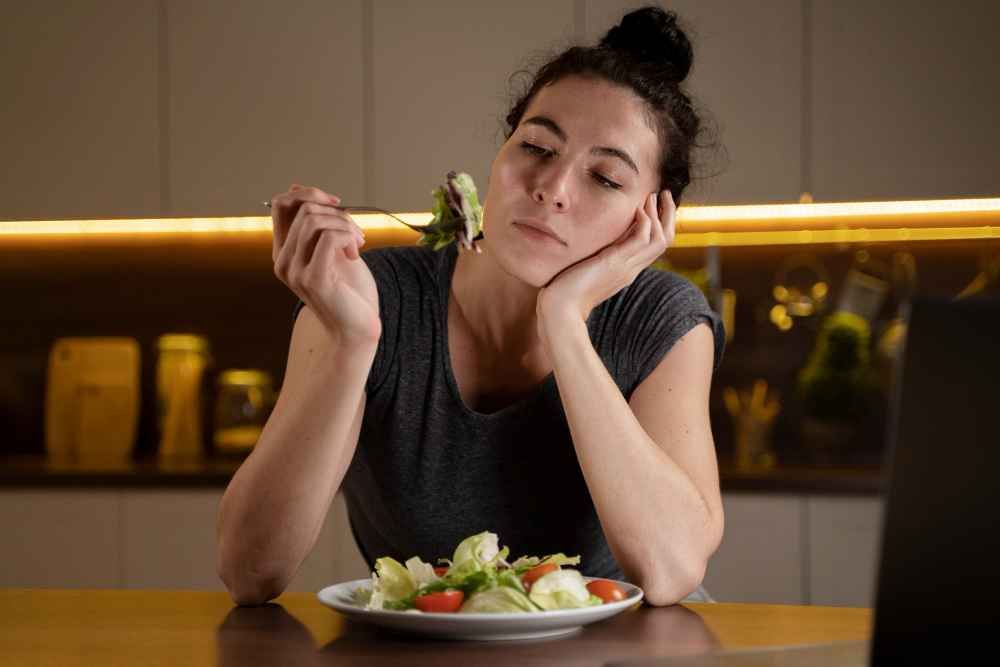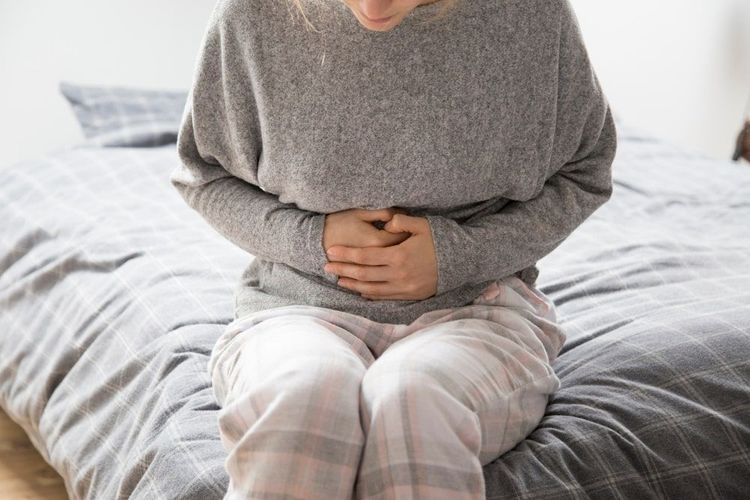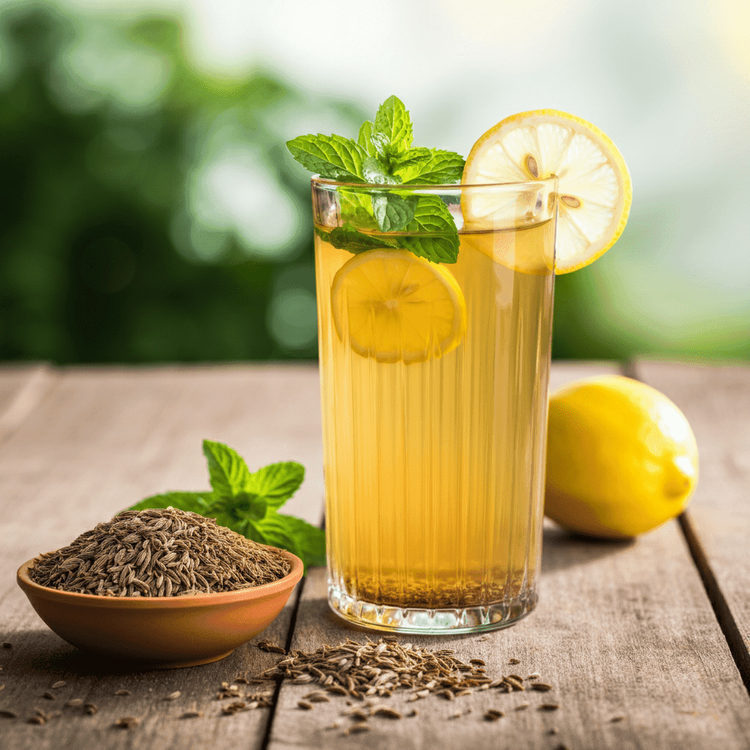Do you often feel discomfort in your stomach after a meal? Are you constantly battling with bloating, gas, and abdominal pain? It is a common condition that can be caused by various factors such as diet, digestion problems, and even stress.
Yes, stomach bloating is a common issue that many people face on a daily basis. It can not only make you feel uncomfortable but also affect your confidence and overall well-being. That's why it is important to know how to prevent stomach bloating and alleviate its symptoms.
Today, I will share some helpful tips to prevent stomach bloating and How to Improve Digestion at Home. After following these tips, you will not only see a reduction in bloating but also feel better and more energized.
Causes of Stomach Bloating

Before we look at preventative measures, let's first understand the common causes of flatulence. This will help you identify any potential triggers and avoid them in the future.
- Eating too quickly or not properly chewing your food can cause air to enter your digestive system, leading to bloating.
- Consuming foods high in salt, sugar, or artificial sweeteners can cause excessive gas build-up in the stomach.
- Certain medications and supplements can disrupt the digestive system and cause bloating as a side effect.
- Swallowing while talking, chewing gum, or drinking carbonated beverages can also cause flatulence.
- Stress and anxiety can also contribute to bloating and other digestive issues.
- Lack of physical activity and a sedentary lifestyle can also slow down digestion, causing excess gas and bloating.
These are some common causes of bloating that can be easily addressed by making simple lifestyle changes. However, in some cases, you may experience chronic bloating that requires medical attention.
Possible Medical Causes of Bloating
Some underlying medical conditions may also lead to bloating and should be addressed by a healthcare professional.
Some possible medical causes of bloating include:
- Irritable bowel syndrome (IBS)
- Liver disease
- Pancreatitis
- Celiac disease
- Ovarian cancer
- Inflammatory bowel disease (IBD)
If you're dealing with persistent bloating, it's a good idea to see your doctor to find out what might be causing it.
Must Read: The Benefits of Jeera Water for Digestion
Prevention Tips for Bloating
Watch Your Diet

The first step in preventing stomach bloating is to be mindful of what you eat. Certain foods can cause gas and bloating, especially if you have a sensitive digestive system. Here are some common foods that you should limit or avoid to reduce bloating:
- Carbonated drinks
- Artificial sweeteners
- Fried and fatty foods
- Onions and garlic
- Dairy products, especially lactose-containing ones
- Fruits (such as apples, pears, and peaches) that are high in fructose
- Cauliflower, Broccoli, and Beans
All of these foods can cause gas and bloating. Therefore, it’s wise to minimize their presence in your diet. Instead, opt for foods that are easy to digest and won't cause discomfort or bloating. Some examples include:
- Lean proteins: Fish, chicken, turkey, and tofu are all great options for protein that is easy on the digestive system. They are also low in fat and won't cause gas or bloating.
- Low-fiber carbohydrates: White rice, white bread, and pasta are all low-fiber carbohydrates that are easy to digest and won't cause discomfort. These foods can help provide energy without putting stress on the digestive system.
- Cooked vegetables: Raw vegetables can be difficult to digest, so cooked vegetables may be a better choice for those who suffer from digestive issues. Some good options include steamed carrots, squash, or green beans.
Eat Slowly

It's important to eat slowly and mindfully to prevent stomach bloating. When we eat too quickly, we tend to swallow a lot of air, which can lead to bloating and discomfort. Eating slowly allows our bodies to properly digest the food and absorb nutrients. It also helps us recognize when we are full and thus avoid overeating. So if you often experience bloating after meals, try slowing down and chewing your food thoroughly.
Avoid Carbonated Drinks

Carbonated drinks such as soda or sparkling water can also contribute to stomach bloating. These drinks contain a lot of gas, which can get trapped in our digestive system and cause bloating. Many carbonated drinks also contain high amounts of sugar or artificial sweeteners, which can also lead to bloating and discomfort.
If you enjoy drinking bubbly beverages, try opting for alternatives like infused water or herbal teas. These options are much lower in sugar and can help you stay hydrated without the added gas. Remember, staying hydrated is important for maintaining a healthy digestive system and reducing bloating.
Manage Stress

Stress can mess with your digestion, causing things like bloating, cramps, and irregular bowel movements. Finding ways to manage your stress can greatly improve your digestive health. Some popular methods for managing stress include:
- Meditation
- Deep breathing exercises
- Exercise
- Mindfulness practices
- Therapy and counseling
Incorporating stress-reducing activities into your daily routine can help you maintain a healthy balance in your digestive system. Also, finding ways to cope with stress can improve your overall mental health and well-being. So when it comes to improving digestive health, don't forget to take care of your stress levels too.
Watch your fiber intake

Yes, fiber is good for your digestive system and overall health. But eating too much of it can also be a problem. Eating excessive amounts of fiber can lead to bloating, gas, and discomfort in your stomach. It's important to find a balance and make sure you're not consuming an excess amount of fiber.
I recommend consulting with a doctor or nutritionist to determine the right amount of fiber for your specific needs. Also, drink plenty of water when increasing your fiber intake, as this will help with digestion and prevent any discomfort.
After some time, your body will adjust to the increase in fiber, and you will be able to enjoy its benefits without discomfort.
My Experience
My experience with bloating was quite uncomfortable and frustrating. I used to feel bloated after almost every meal, and I had trouble fitting into my clothes because of the constant swelling in my stomach.
At first, I assumed it was just a temporary problem that would resolve itself. But when it persisted for weeks, I knew it was time to take action. I consulted with my doctor and realized that my diet was the main culprit behind my bloating.
After identifying the root cause of my bloating, I started making significant changes to my diet. I also reduced my intake of processed and greasy foods. Instead, I focused on incorporating more whole and natural foods into my meals. These changes not only helped alleviate my bloating, but they also made me feel more energized and overall healthier.
Also like: Morning Routine to Boost Metabolism: Start Your Day Off Right
Final Thoughts
Stomach bloating can be a common and uncomfortable issue, but it is also preventable. By making small changes to your diet and lifestyle, you can improve your digestive health and reduce bloating.
All these tips mentioned above are easy to incorporate into your daily routine and can make a significant difference in reducing bloating. Listen to your body and observe how different foods or activities impact your stomach.
Finally, if bloating persists or becomes severe, it is always best to consult a doctor. They can uncover any underlying causes and offer tailored guidance to help you manage bloating effectively. With a few simple changes and some guidance from a healthcare professional, you can manage bloating and improve your overall digestive health.
Frequently Asked Questions
Is bloating normal after eating?
Mild bloating after meals can be normal, particularly if you've eaten a large portion. However, persistent or excessive bloating may be a sign of a digestive issue that requires attention.
How can I reduce bloating quickly?
To reduce bloating quickly, try walking to help move gas through your digestive system, sip on herbal teas like peppermint or ginger, or gently massage your abdomen. Avoid fizzy drinks and chew your food thoroughly during meals.
Should I avoid chewing gum to prevent bloating?
Chewing gum can actually contribute to bloating as it causes you to swallow excess air. If you experience bloating frequently, it may be best to avoid chewing gum or limit your intake.
What foods can you eat to avoid feeling bloated?
Yes, foods like bananas, cucumbers, ginger, and yogurt with probiotics can help reduce bloating. They promote better digestion and gut health, which are key to minimizing gas and bloating.
When should I see a doctor about bloating?
If bloating is severe, persistent, or accompanied by other symptoms like pain, weight loss, or changes in bowel habits, consult a doctor immediately.




